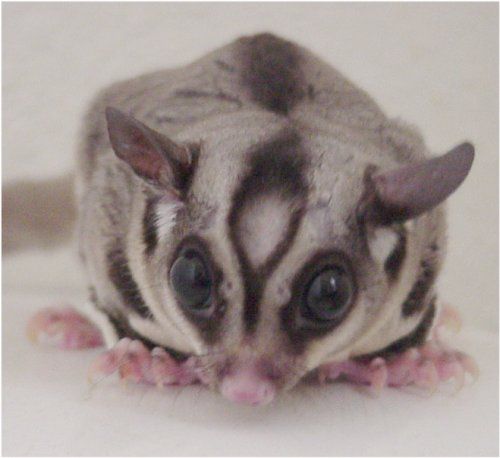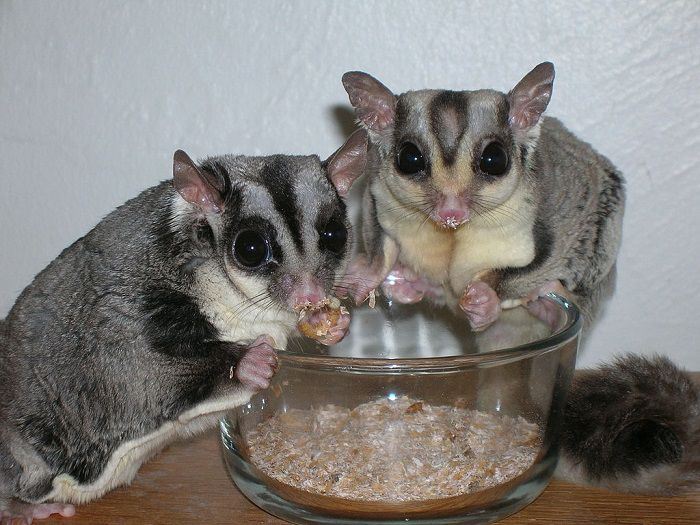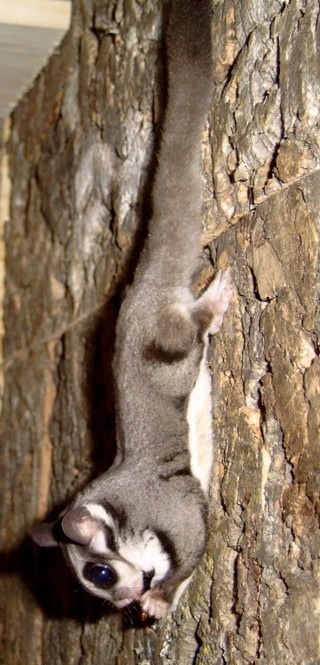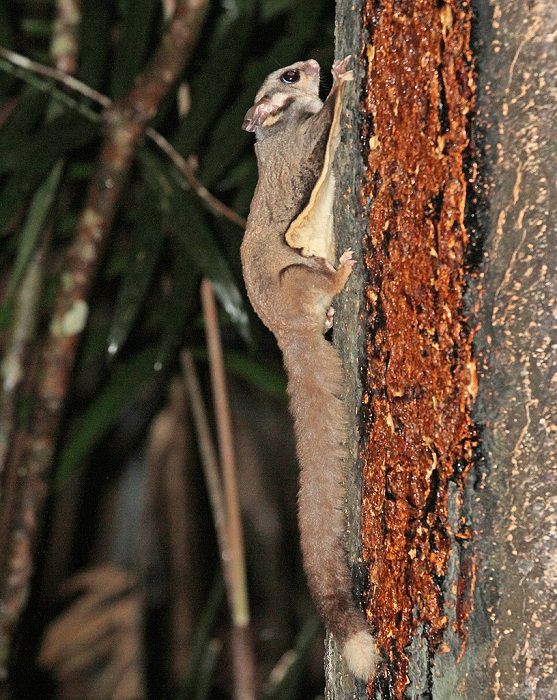Table of Contents
Sugar gliders, like many other animals, will occasionally bite their owners. This biting often occurs when the sugar glider is first brought home and is usually a reaction to fear or anxiety.
When introduced to new surroundings, sugar gliders, again, like many other pets, will be uneasy and afraid. They have been taken from an environment they are used to and placed into one where they have to get used to new surroundings, new noises, and new smells. This naturally elicits anxiety in the sugar glider as it tries to adapt to its new home. If at this time you try to put your hand into your sugar glider’s enclosure, it would not be uncommon for it to try to bite you. This is because it will no doubt see you as a threat.
How you deal with the situation will help immensely with the bonding process. I recommend giving your new pet time to get used to its surroundings, but do not leave it entirely by itself as sugar gliders are sociable creatures that like to be around others. Try talking calmly and quietly to your glider as it looks around. When it is in its sleeping pouch, gently remove the pouch from the cage and continue to speak calmly as you hold the sugar glider close.
are sociable creatures that like to be around others. Try talking calmly and quietly to your glider as it looks around. When it is in its sleeping pouch, gently remove the pouch from the cage and continue to speak calmly as you hold the sugar glider close.
How to Break the Biting Behavior
Biting is completely normal in sugar gliders that have been introduced to new surroundings. Nevertheless, it is important that you try to break this behavior as soon as possible. Something to bear in mind, however, is that it is not a good idea to ‘punish’ the sugar glider for biting. You need to remember that the creature is scared and is only doing what is natural to it.
Another thing to avoid (this will take some strength on your part) is pulling back when the sugar glider bites. This might be easier said than done because our instinctive reaction is always to pull away. But you must learn to overcome this natural response if you want the glider to stop biting.

Sugar Glider 
Sugar Gliders Eating Mealworms
By biting or trying to bite, your sugar glider is attempting to intimidate you. If it believes the tactic is working, it will continue to do it every time you approach.
You might then be tempted to wear gloves when trying to bond with your sugar glider , but this will only mask your natural scent and will hamper the bonding process. It is better to use pieces of cloth that you have transferred your scent to. You can then place these cloth pieces into your sugar glider’s sleeping pouch and use them to cover your hand when you are trying to bond with your pet. If your sugar glider is used to your scent, it will be less likely to bite you.
, but this will only mask your natural scent and will hamper the bonding process. It is better to use pieces of cloth that you have transferred your scent to. You can then place these cloth pieces into your sugar glider’s sleeping pouch and use them to cover your hand when you are trying to bond with your pet. If your sugar glider is used to your scent, it will be less likely to bite you.
Why Else Do Sugar Gliders Bite?
Biting is fairly common during the bonding stage, but it can sometimes occur in sugar gliders that have already bonded to you. There are a number of causes for this.
Sometimes, a sugar glider will bite because it does not recognize your scent. This can happen if you have changed the soap or perfume you’ve been using, or if you have been cooking with a strong-smelling item such as garlic or curry powder.
Biting might also be behavior used by your glider as a way to interact with you in an affectionate manner. You might not feel that it is affectionate behavior, but your sugar glider may have other ideas. An affectionate bite will be different to one born out of fear. It will be similar to a bite given by a puppy when it is playing. It is gentler and not designed to hurt.

Conclusion
Sugar gliders will often bite in response to fear, but fortunately this behavior usually subsides after bonding has taken place. Nonetheless, your sugar glider may also bite you (in a gentler way) if it is trying to work out why you smell different or if it is trying to be affectionate.
Biting is common but once you have bonded, these bites should not hurt and should not be anything to worry about.
Photo Credits:
- Featured Image (Sugar Glider on Tree): Joseph C Boone
 – CC BY-SA 4.0
– CC BY-SA 4.0
- Sugar Glider: Dawson
 – CC BY-SA 2.5
– CC BY-SA 2.5
- Sugar Glider Upside Down: Anke Meyring
 – CC BY-SA 2.5
– CC BY-SA 2.5
- Sugar Gliders Eating Mealworms: OberonNightSeer
 – CC BY-SA 3.0
– CC BY-SA 3.0


